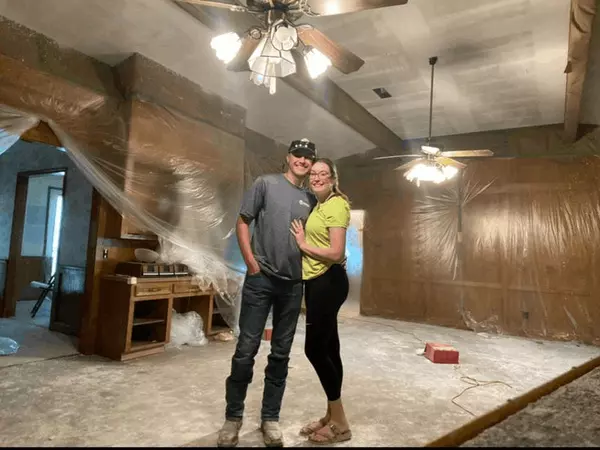What Realtors Don't Tell You About Selling Your Home: Unveiling the Hidden Truths

When selling your home, you likely turn to a realtor for guidance, trusting them to provide the expertise needed to navigate the complex world of real estate. While most realtors are dedicated professionals, there are certain aspects of selling a home that they might not fully disclose upfront. Understanding these hidden truths can save you from unexpected surprises and ensure you’re fully prepared for the selling process.
1. The Hidden Fees That Add Up
Selling a home isn't just about finding a buyer and signing the papers—there are numerous fees involved that can catch you off guard if you're not aware of them. While your realtor will likely mention their commission fee, which typically amounts to 7% on the first $100,000 of the sale price and 3% on the balance, other costs might not be discussed as openly:
-
Legal Fees: You’ll need a real estate lawyer to handle the paperwork, title transfers, and ensure everything is legally binding. This can range from $1,000 to $2,500 depending on your location and the complexity of the sale.
-
Home Staging Costs: Realtors might suggest staging your home to make it more appealing to buyers. While effective, staging can cost anywhere from a few hundred to several thousand dollars, depending on the size of your home and the length of time it's on the market.
-
Pre-Inspection Fees: Some sellers opt for a pre-inspection to identify potential issues that could derail a sale. This proactive step can cost between $300 and $600 but is often recommended by realtors to prevent last-minute negotiations.
-
Mortgage Penalties: If you're breaking your mortgage early due to the sale, you might face penalties. This can be a hefty cost, especially with fixed-rate mortgages. Realtors might not always highlight this, but it’s crucial to check with your lender.
2. GST and Your Home Sale: The Exemption You Didn’t Know About
One of the less commonly discussed aspects of selling your home is the Goods and Services Tax (GST). The good news? If you’re selling your primary residence, you’re exempt from paying GST on the sale. This can be a significant relief, as the tax would otherwise be 5% of the sale price.
However, this exemption only applies to your primary residence. If you’re selling an investment property or a secondary home, GST may apply. It’s essential to clarify with your realtor whether your sale qualifies for this exemption.
Also, it's important to note that GST is generally only payable on the purchase of a brand-new home, not on the sale of an existing one. If you’re buying a newly constructed home, be prepared to pay GST on the purchase price.
3. Capital Gains Tax: When It Applies and How to Prepare
Another critical aspect of selling your home that might not be fully explained is capital gains tax. Here’s what you need to know:
-
Primary Residence Exemption: If the property you’re selling has been your primary residence for the entire time you’ve owned it, you’re exempt from paying capital gains tax. This exemption is a significant advantage for homeowners, as it allows you to keep the full profit from the sale.
-
Partial or No Exemption: If the property was not your primary residence for the entire time, or if it’s an investment property, you may have to pay capital gains tax on the profit made from the sale. This tax can be substantial, as up to 50% of the gain is taxable.
-
Proving Your Primary Residence: The Canada Revenue Agency (CRA) may require proof that the property was indeed your primary residence. This could include utility bills, mail, and other documents showing you lived at the address.
Understanding when capital gains tax applies is crucial, especially if you’ve owned multiple properties or have rented out a portion of your home. Realtors might not dive into the tax implications, so it’s wise to consult a tax professional to ensure you’re fully prepared.
4. What Needs to Change: The Honest Truth About Home Improvements
Realtors want to sell your home, but they might not always tell you exactly what needs to be changed to make it more marketable. Whether it's outdated fixtures, worn carpets, or a lack of curb appeal, some realtors may avoid suggesting changes that could add to your costs or delay the listing process. However, making necessary improvements can often result in a quicker sale at a better price.
-
Curb Appeal: First impressions matter. If your home’s exterior isn’t up to par, potential buyers might not even step inside. Simple changes like fresh paint, landscaping, or updated lighting can make a big difference.
-
Interior Updates: Kitchens and bathrooms often sell homes, but if yours are outdated, it could turn buyers away. Realtors might not push for renovations due to time and cost, but small updates, like new hardware or a fresh coat of paint, can go a long way.
-
Neutral Decor: While you might love your bold color choices, potential buyers might not. Neutral tones help buyers envision themselves in the space, making it easier for them to imagine the home as their own.
5. The Timing of Your Sale: Market Conditions vs. Personal Circumstances
Realtors often focus on market conditions when advising you on when to sell your home. However, they might not emphasize how your personal circumstances should influence this decision as well. While selling in a hot market can lead to a higher sale price, consider the following:
-
Mortgage Penalties: As mentioned earlier, breaking your mortgage early can result in penalties. If the financial impact of these penalties outweighs the benefit of selling in a hot market, it might be better to wait.
-
Personal Financial Goals: Your reasons for selling—whether it’s downsizing, relocating, or freeing up capital for other investments—should be weighed against market conditions. A great market means little if selling doesn’t align with your financial goals.
-
Moving Costs: If you’re selling to move into a new home, consider the costs of relocating, including movers, interim housing, and potential overlap of mortgage payments. These can add up and should be factored into your decision.
6. Negotiation Realities: It’s Not Always a Seller’s Market
While your realtor may assure you that it’s a seller’s market, the reality can be more nuanced. Factors such as local market conditions, the specific desirability of your property, and even broader economic trends can influence your negotiation power. Here’s what to keep in mind:
-
Buyer’s Leverage: In some cases, buyers may have more leverage than you expect, especially if there are similar properties on the market. Realtors may not always emphasize this to keep your expectations high.
-
Conditional Offers: Be prepared for buyers to include conditions in their offers, such as financing or inspection contingencies. These conditions can slow down the process and even lead to renegotiations.
-
Emotional Attachments: Sellers often have emotional attachments to their homes, which can cloud judgment during negotiations. A realtor’s role is to provide an objective perspective, but they might not always prepare you for the emotional aspect of selling.
Conclusion: Knowledge is Power in Real Estate
Selling your home is one of the most significant financial transactions you’ll make, and being fully informed is crucial. While your realtor is there to guide you, understanding the hidden fees, tax implications, necessary home improvements, and negotiation realities can empower you to make the best decisions.
By being aware of these less-discussed aspects of selling, you can avoid surprises and ensure a smoother, more profitable transaction. Whether it’s budgeting for unexpected costs, timing your sale to suit your personal goals, or making the right updates to your home, a well-informed seller is a successful one.
Categories
Recent Posts











"My job is to find and attract mastery-based agents to the office, protect the culture, and make sure everyone is happy! "
